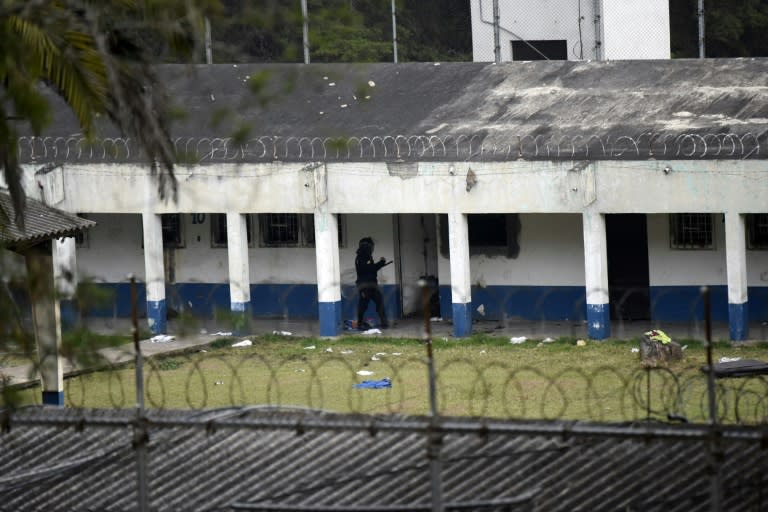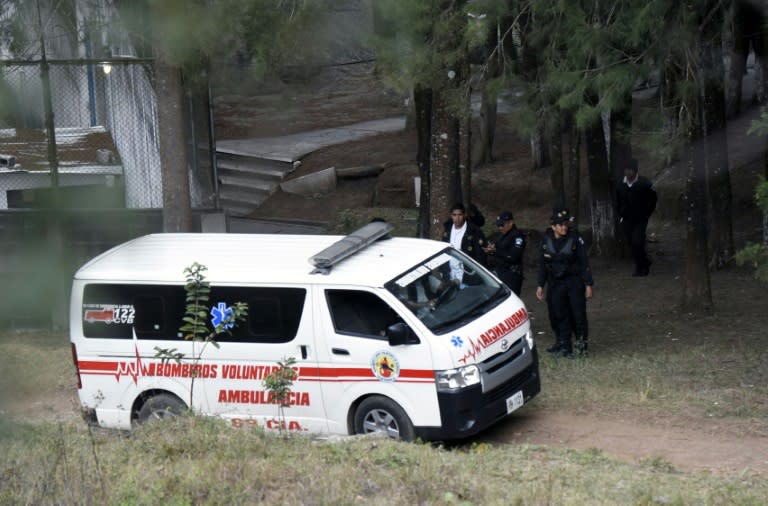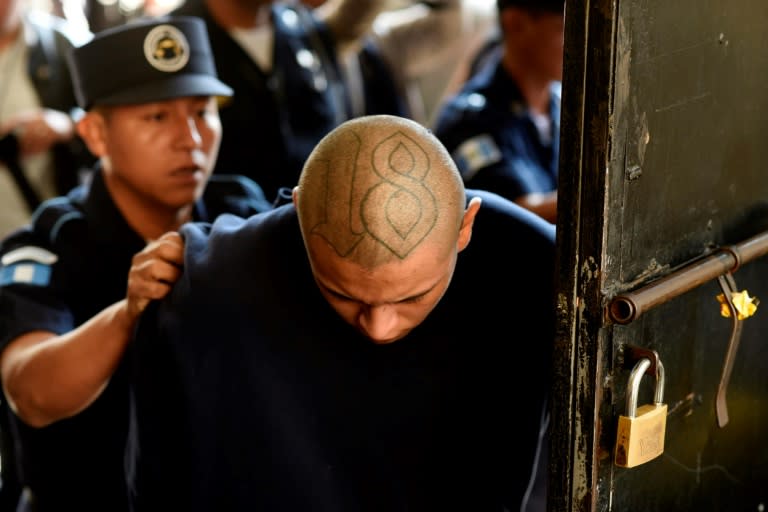Guatemala gang attacks police after raid on detention center
One of Guatemala's most-feared gangs, Barrio 18, has launched a wave of murderous attacks on police across the country following the storming of a detention center overrun by its jailed members, officials said Tuesday. Police are on "maximum alert" after at least nine assaults on police stations that have killed three officers and wounded seven, according to Interior Minister Francisco Rivas. Thirteen suspected gang members have been arrested in the wake of the attacks, and weapons including a grenade launcher, five assault rifles, four pistols and two bulletproof jackets seized, along with several vehicles, he said. He called the attacks a "reaction by organized crime" to Monday's raid on the detention center. The storming of the Stage II facility in San Jose de Pinula, just outside Guatemala City, was ordered after dozens of Barrio 18 inmates rioted and killed two guards and took four others hostage. The building was technically a detention center for juvenile offenders, but many of the nearly 200 males held inside were aged over 18. Twenty of the tattooed Barrio 18 inmates linked to the guards' murders appeared in court on Tuesday, wearing white t-shirts and with their hands cuffed. Police stood guard behind them. - President criticized - President Jimmy Morales had hailed the raid on Monday that freed the four guards. But that congratulatory message soon turned sour. Hospital officials on Tuesday confirmed that two of the guards had died from their wounds. Of the two others, one was in a critical condition and the other in a stable condition. Officials said the fatal wounds had been inflicted on the guards by the inmates. But Castillo had said Monday, at the height of the hostage stand-off and before the police raid, that the four guards "are well -- beaten up, but OK." During the storming of the blue-and-white detention center, journalists outside its barbed wire-topped fence had heard detonations and screams inside the building. The deaths, and the subsequent attacks on police, robbed Morales of a relatively successful denouement to the detention center riot. He and his administration are under considerable public pressure and criticism over the poor conditions and treatment of minors held in government-run facilities. That is because of a fire in a children's shelter close by the Stage II detention center in the same town less than two weeks ago that killed 40 teenage girls. The minors being held in the Virgin of the Assumption Safe Home had long complained of mistreatment by staff, including sexual abuse. There were also suspicions of a prostitution ring, according to the prosecutor's office for human rights. Although the head of the social welfare ministry responsible for both facilities and several ministry officials were arrested following the March 8 fire, anger is still being directed at Morales in the form of frequent protests. - Minors face 'true hell' - The ministry runs five children's homes and four juvenile detention centers across the country, together accounting for around 3,000 minors. Carmen Aida Ibarra, director of ProJusticia, a non-governmental righths group, said those facilities were "true hell." Rampant corruption and the non-application of laws and rights meant there was no hope of rehabilitation for children sent to them, she said. "We are seeing an absence of a protection system for children and adolescents," said Sandra Lopez, head of prevention for another group, Children's Shelter. The lack of personal attention and tailored programs for the children in shelters accentuated the shortcomings, she said. She called for parents to be educated in how to handle rebellious children. For the detention centers, she said conditions were unsuitable and inadequate. Following the Stage II center riot, Morales has called an urgent meeting of lawmakers and justice officials to revise policies regarding children in care of the state. Guatemala is one of the most dangerous countries in Latin America, prey to Barrio 18 and other gangs. Nearly 60 percent of its 16 million inhabitants live in poverty, according to the World Bank.




